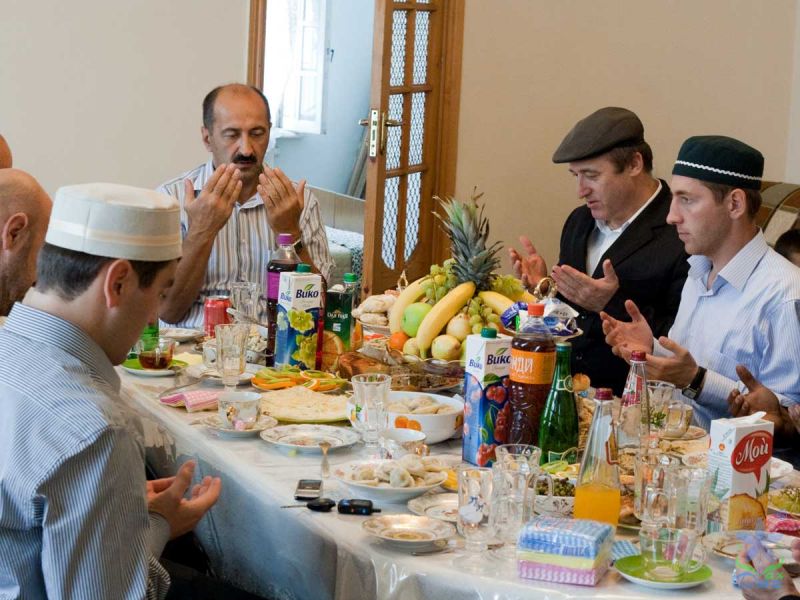They should involve lots of green vegetables and salads except raw onions, green peas, potatoes, carrots and beetroot as they can shoot up ones glucose levels.
Fruits like papaya, apples, sweet limes and oranges are permitted. Food with low glycaemix index like oatmeal, whole wheat, barley, corns, legumes and lentils should be preferred. Grilling should always be preferred over deep frying.
📚 Read Also: Don’t Let the Last 10 Nights of Ramadan Slip Away!
What About Exercising?
Type 1 diabetics shouldn’t exercise at all as it upsets their glucose levels profoundly and therefore are preferred to offer prayers sitting on the chair, whereas type 2 diabetics and hypertensive patients can have their practices with focus on aerobics and strength training after iftar.
“It’s time to press the buzzer”, during Ramadan diabetic and cardiovascular patients have increased chances of complications which could be disastrous, hence, one needs to be alarmed as complications like hypoglycaemia , hyperglycaemia, diabetic ketoacidosis, dehydration, volume depletion, hypotension and thrombosis may occur.
Patients during fasting need to check their blood sugar and blood pressure frequently especially if they feel very thirsty, have excessive urination, giddiness, perspiration and extreme tiredness.
They should break the fast immediately if blood glucose goes below 70 milligram% (mgm%) or exceeds 300 milligram%.
The same quick action must be taken if the blood pressure goes below 100/60 millimetre of mercury (mm of Hg) or in case of having any feel of chest discomfort or breathlessness.

There is a wide range of Islamic regulations for any believer who is medically unfit to fast.
Exemption from Fasting
The Islamic fast is an act of worship and obedience to Allah, thanksgiving, spiritual training and self-examination.
Fasting cannot be taken by people with Type 1 diabetes, which is characterized by the total absence of insulin and hence could be deleterious.
Similarly, patients with Essential Hypertension should also avoid fasting as they can land up with major problem unless they have practiced the changes in their dosages and timings prior to Ramadan and were comfortable with it.
A mere gastritis could lead or mislead us to myocardial infarction (heart attack), so patients on medicines of dyslipidemia and past history of myocardial infarction should exempt themselves from fasting.
If someone who is ill fasts in spite of his illness and bears the burden of fasting patiently, his fasting is valid although his action isn’t commendable because he has turned his back on a concession Allah has granted him.
Moreover, he may injure himself by his action while in fact Islam gives the priority to human wellbeing.
The Holy Qur’an states: “Truly it is in the remembrance of Allah that the hearts find peace.”(Surat Ar-Ra’d 13:28). And Allah Almighty also says: “Do not kill yourselves. Allah is compassionate to you.” (Surat An-Nisa’ 4:29).
Furthermore, Allah and His Messenger informed us in the Qur’an and Sunnah respectively about the regulations which Islam has established for sick people who cannot fast.
There is a wide range of Islamic regulations for any believer who is medically unfit to fast.
This article is from our archive, originally published on an earlier date
References:
- Exercising during Ramadan. June 17, 2015. Health 24.com.
- Exemption from Fasting. Adil Salahi. Al-Jazeerah. November 9, 2004.
- Fasting is Your Health Solution. Fasting Center International.
- Population-Based Study of Diabetes and Its Characteristics During the Fasting Month Of Ramadan. DiabetesJournals.org. October 2004.
